Tired after eating? Here's what to eat to avoid fatigue
If you constantly feel tired after eating, you may want to give these tips a go


It's not uncommon to feel tired after eating a large meal. For most of us, it’s probably the result of an occasional overindulgence, rather than something that's cause for concern.
This feeling is known as postprandial somnolence, or sleepiness, and explains the feeling of decreased energy levels after eating. Many people also refer to this as the ‘post lunch dip’, as a big lunch can make us feel ready for a nap right in the middle of the day.
There are many factors that can contribute to this feeling, including the composition of a meal, the time it is eaten, as well as the volume of food consumed. But there's also a possibility your body is experiencing a dip in particular vitamins and minerals, in which case you may need to look at supporting your energy levels with the best B12 supplements or another nutrient.
As there are so many potential reasons for this feeling of fatigue, it’s hard to know for sure what is causing it, and it is different in each person’s case. Certain medications, anaemia, diabetes, thyroid related problems, and other conditions are all causes of tiredness, so it’s important to keep an eye on your symptoms in case other factors are involved.
Here, we ask Helena Thomas Harman, nutritionist for Holland & Barrett, why you may feel tired after eating, and how it can be avoided.
What causes tiredness after eating?
“What you’re eating and drinking could hold the answer to why you’re feeling tired all the time,” says Thomas Harman. Research in the journal Sleep found that a diet packed with sugary foods and beverages or refined carbohydrates (such as white bread and potatoes) can leave you sleepy and craving a sugary ‘pick-me-up’. Thomas Harman further explains that this is because, when we eat sugar or refined carbs, our blood sugar experiences a rise or ‘spike’.
When we experience a spike, our bodies flood with insulin to bring down the levels of glucose (sugar) in the blood, which can make you feel spaced-out and sleepy.
Get the Fit&Well Newsletter
Start your week with achievable workout ideas, health tips and wellbeing advice in your inbox.
People may also feel sleepy after eating a large meal because their body is producing more serotonin. Serotonin plays a key role in regulating mood and sleep cycles, and so it can give you a feeling of drowsiness. Tryptophan, which is an amino acid found in many protein-rich foods, helps the body to produce serotonin. Carbohydrates help the body to absorb this amino acid, and so when eating a carb heavy meal, such as pasta, you may experience a feeling of sleepiness.
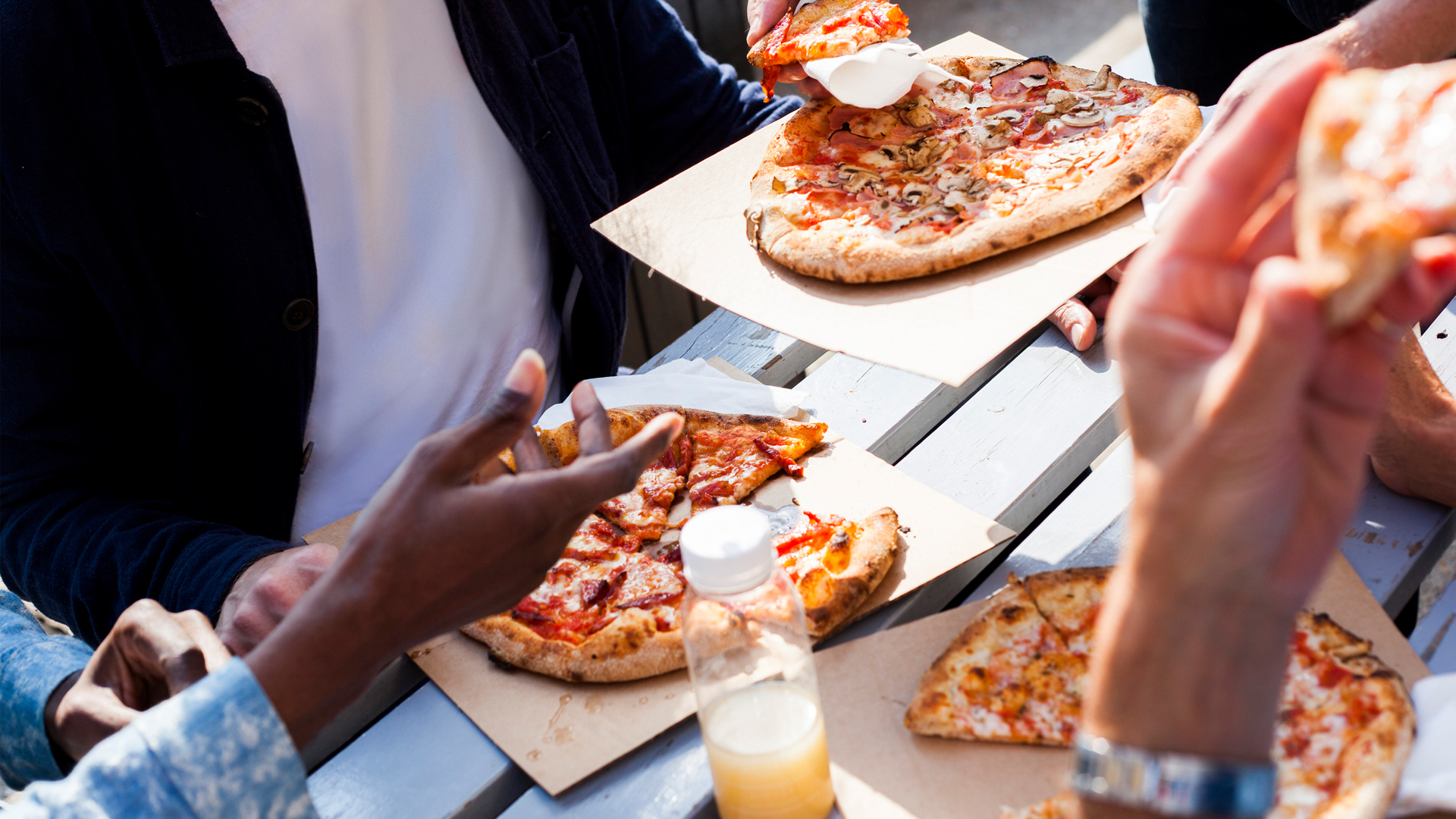
“But feeling fatigued in this way could also mean that you’re experiencing a deficiency of some sort, and could use an increase in particular vitamins and minerals,” explains Thomas Harman. Weakness, tiredness and fatigue are all symptoms of a deficiency in B-vitamins, she says. Whole grains, eggs and dark leafy vegetables are all good vitamin B12 foods to include in your diet.
Iron deficiency anaemia also causes tiredness, lack of energy and shortness of breath. Meat, as well as dark green vegetables, pulses and fortified cereals, are all good sources.
Hydration is also key to prevent tiredness. Water is essential for our body to deliver oxygen and nutrients to our cells, so when the body becomes dehydrated it causes tiredness. Most of us should aim to drink 1.5-2 litres of fluid a day (about 8-10 glasses), however this can fluctuate depending on lifestyle choices. You can keep an eye on your hydration levels by checking your urine; it should be a pale yellow colour throughout the day. Arming yourself with the best water bottle can also help you to take on enough fluids.
Alcohol is known to cause sleepiness, and so drinking alcohol with your meal will likely leave you feeling ready for bed. Although it's worth noting that the quality of sleep after consuming alcohol tends to be poorer, so don't treat it as a nightcap.
What foods make you sleepy?
What we put into our bodies can also impact our energy levels, as well as how well we sleep. Packing ourselves full of foods such as cakes, pasta, rice, dairy and chocolate can make us tired, as our body isn’t getting the steady supply of energy it needs to function all day long. Fatigue is a common sign of having low blood sugar levels.
Surprisingly, eating a large quantity of nuts could also cause sleepiness. Some nuts, such as pistachios and walnuts, have very high melatonin levels, which is known to induce a feeling of sleepiness.
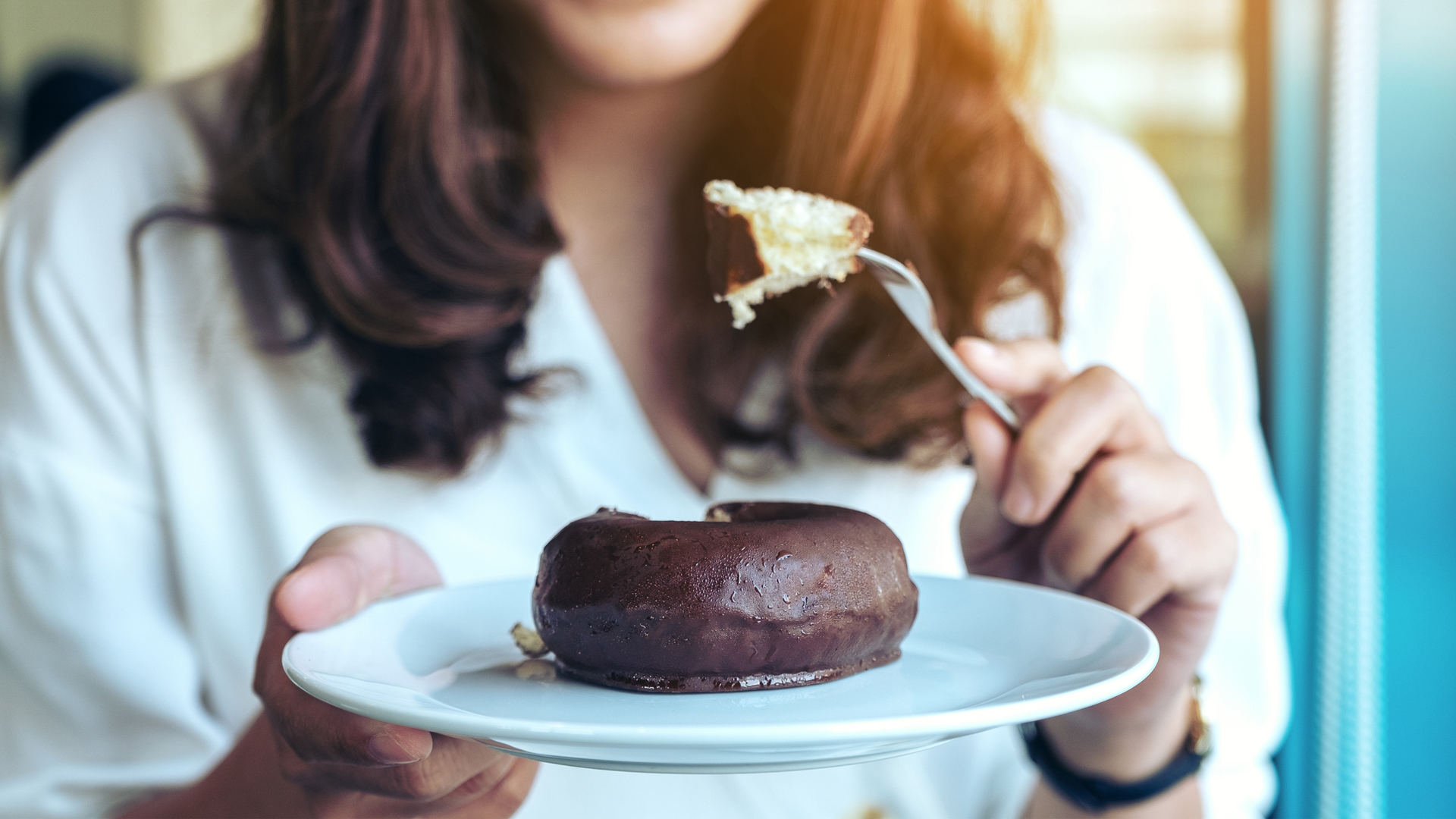
Of course, it also matters how much food you’re eating. You’re less likely to experience a slump in energy levels if you eat smaller meals throughout the day, rather than eating fewer large meals. Eating at a relatively consistent time each day can also help with avoiding sleepiness after a meal, according to a study in Current Biology.
How can you avoid feeling tired after eating?
Eating smaller and more regular meals is the best way to provide sustained energy throughout the day. Slow release carbohydrates provide the body with glucose which is used as an energy source. Choosing foods such as wholegrains, vegetables, fruits and legumes in every meal is a great way to provide sustainable energy, as is including a good source of protein to keep you full for longer.
Caffeine may alleviate feelings of fatigue in the short term, however it may exacerbate symptoms in the long run through its effect on the nervous system. Caffeine withdrawal can also cause feelings of tiredness as well as decreased alertness and headaches.
There has been a link found between our sleep quality and our diet. Sleep is incredibly important for our digestion and hormone regulation, and so we should aim to get between seven and nine hours every night.
Research conducted by the University of Edinburgh has also shown that magnesium helps to control how our cells manage the cycle of day and night. Magnesium levels in cells rise and fall through the day, regulating our body clock, but also affecting how well nutrients are converted into energy. Foods rich in magnesium include leafy green vegetables, nuts, seeds, dairy products and wholegrains.
To help improve sleep, avoid spicy foods, caffeine and alcohol as they can all hinder sleep quality.
When to see a doctor
It's quite normal to feel sleepy after eating a big meal, or one rich in the foods we've talked about. But If your sleepiness is interfering with your day-to-day life, work and socialising, or is causing you to fall asleep at several points throughout the day, you should consult the help of your doctor.

Mollie is a lifestyle journalist who regularly contributes to publications including Insider, Cosmopolitan, The Metro, Healthline, HelloGiggles, Reviewed, HuffPost, Independent, and Fabulous, amongst others. Particularly, Mollie covers health and beauty. Basset Hounds are Mollie's favourite things on the earth - she has her own named Olive. Mollie loves anything with too much sugar in, the color yellow, pop culture, and musical theatre.
-
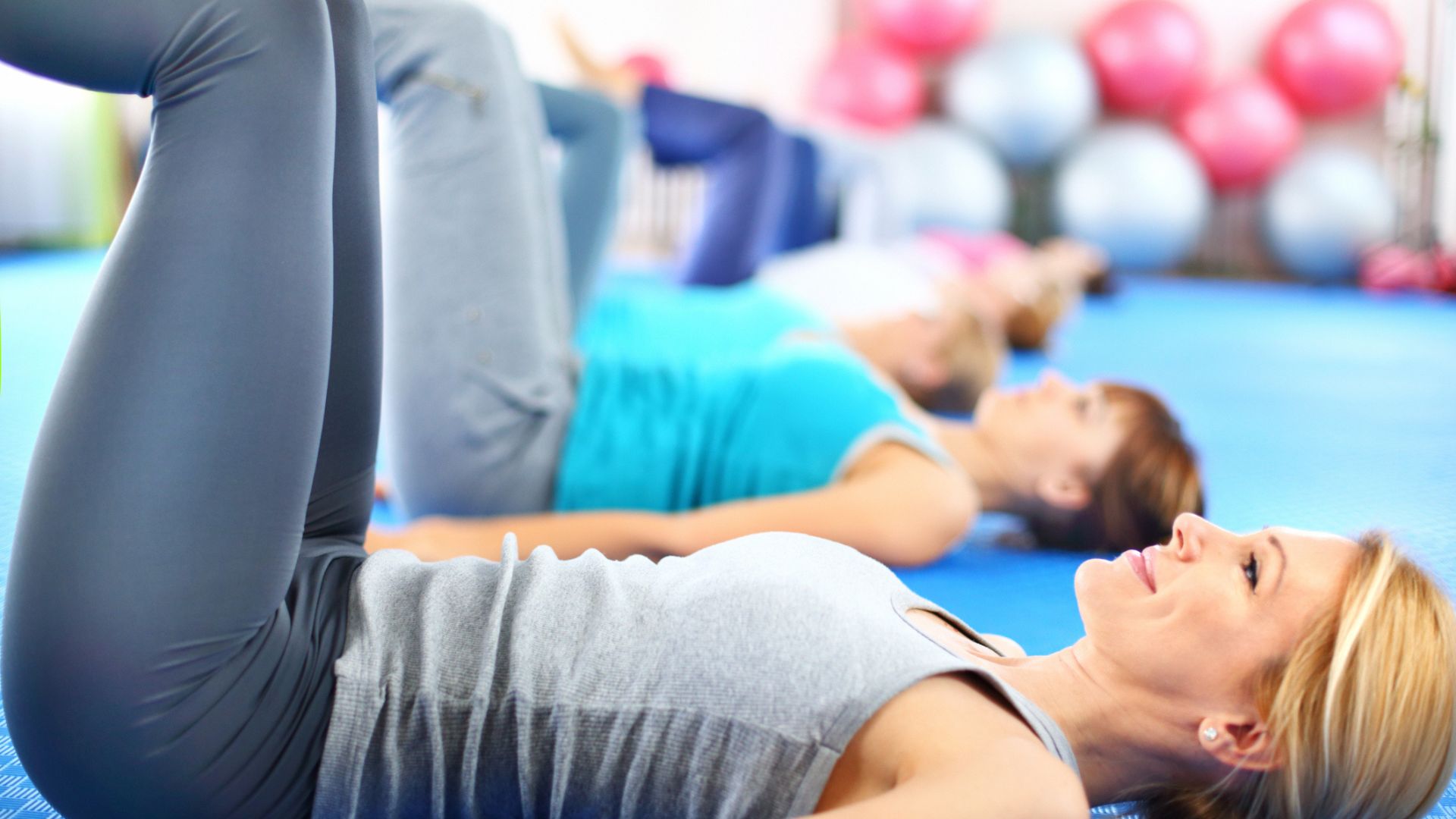 A Pilates instructor says this is the beginner-friendly core exercise everyone should try
A Pilates instructor says this is the beginner-friendly core exercise everyone should tryForget crunches, this is the perfect foundation move
By Alice Porter Published
-
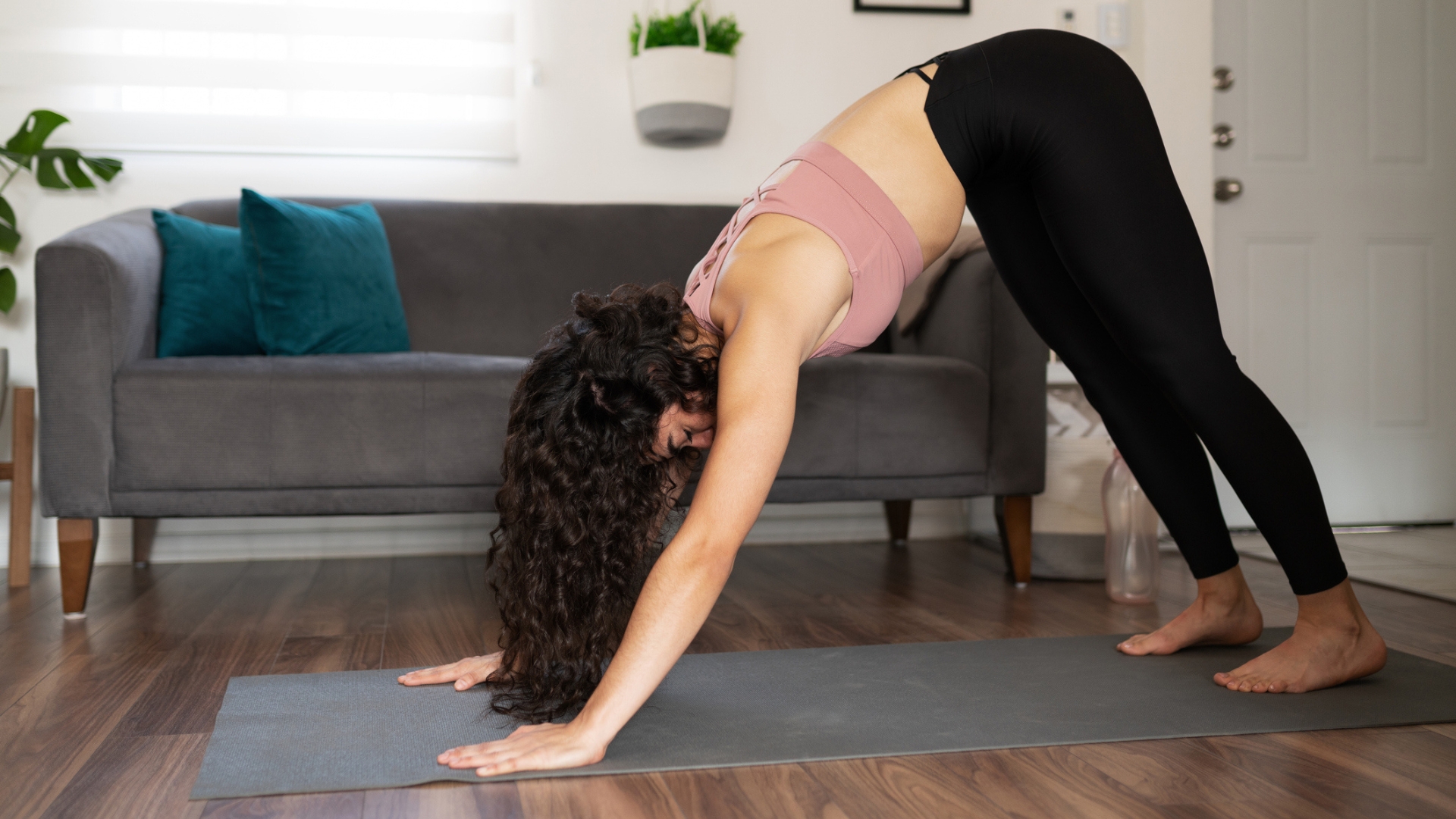 Prevent poor posture and release tension from sitting down with these four simple stretches from a yoga instructor
Prevent poor posture and release tension from sitting down with these four simple stretches from a yoga instructorThe daily poses he swears by, no matter what
By Alice Porter Published
-
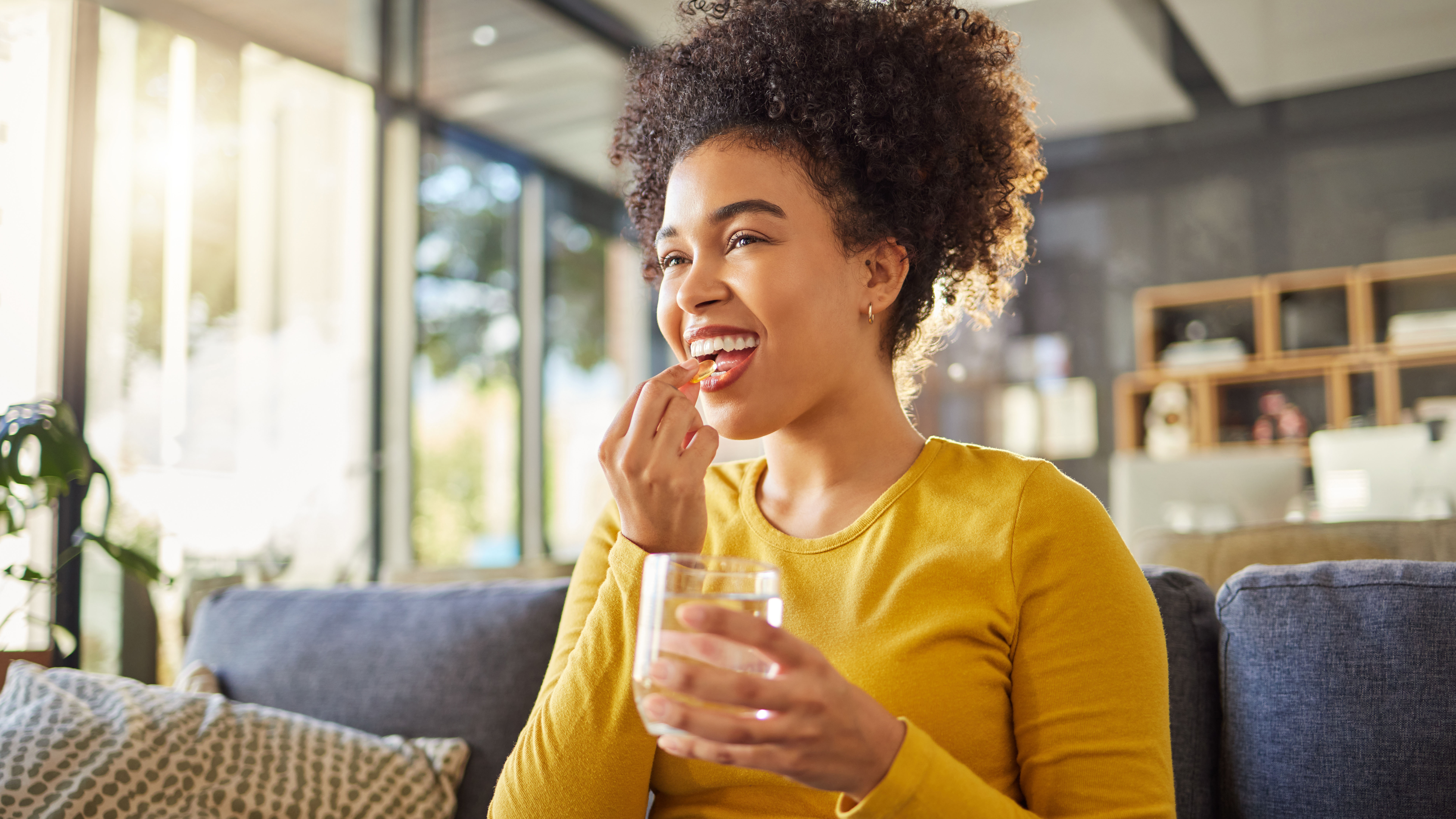 Best vitamin D supplements
Best vitamin D supplementsBUYING GUIDE Take one of the best vitamin D supplements to give your mood a helping hand this winter
By Alice Ball Last updated
-
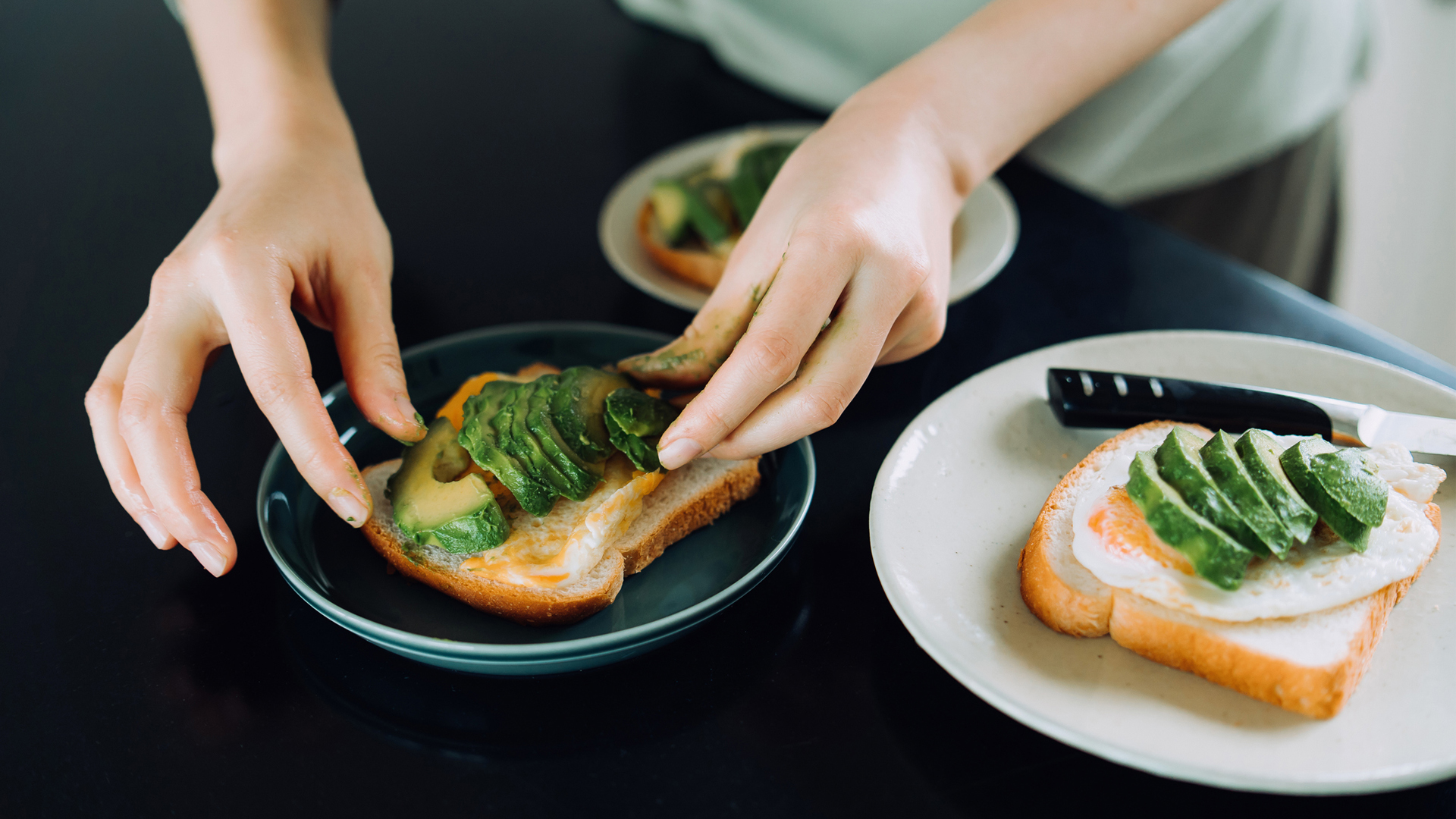 Six high fiber foods you should be eating
Six high fiber foods you should be eatingEnjoy these high fiber foods for better digestion and a healthier heart
By Anna Gora Last updated
-
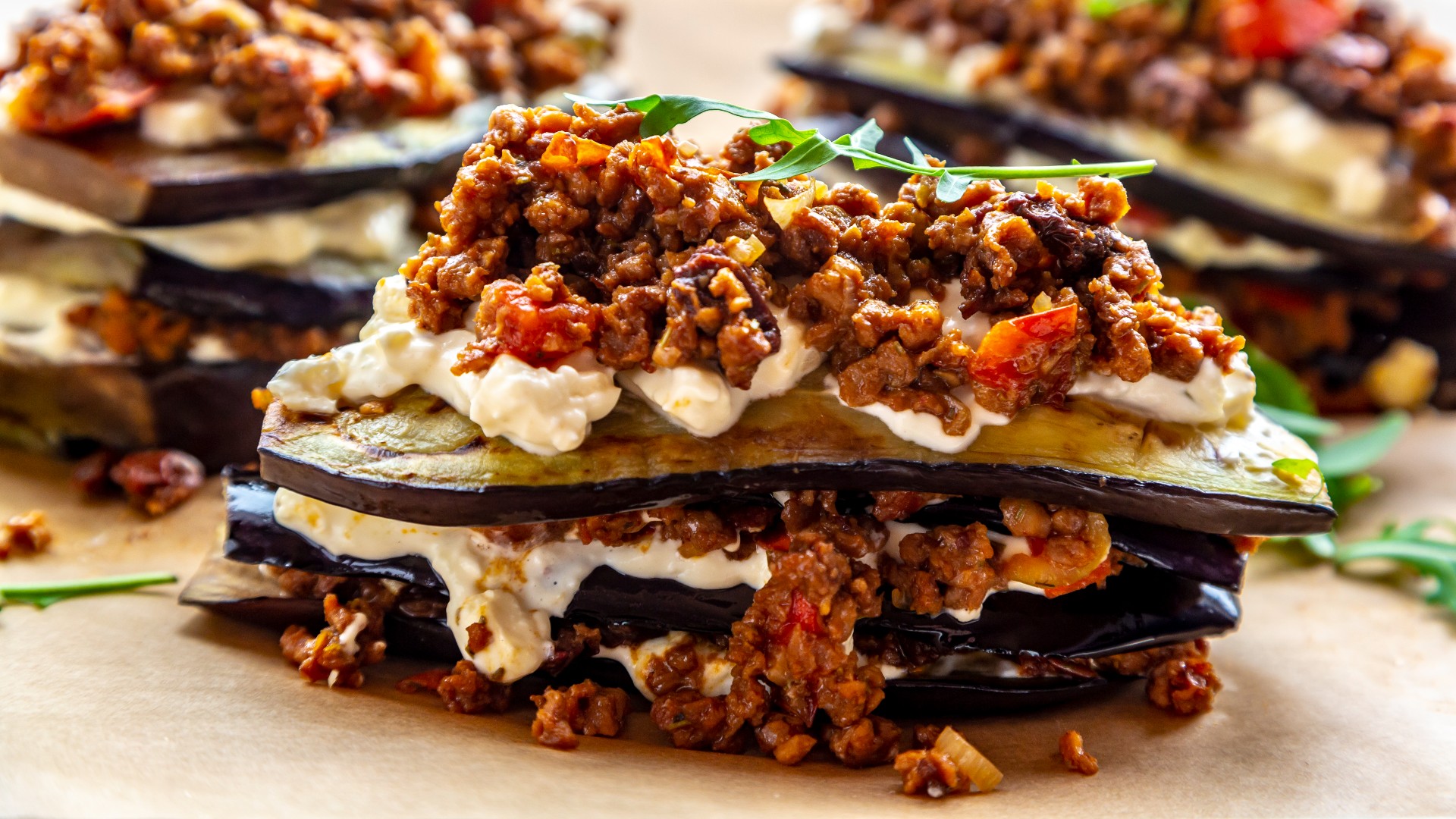 Easy low carb diet plan to help you eat well
Easy low carb diet plan to help you eat wellNutrition Looking for a low carb diet plan? We asked a dietician to share everything you need to know
By Alice Porter Last updated
-
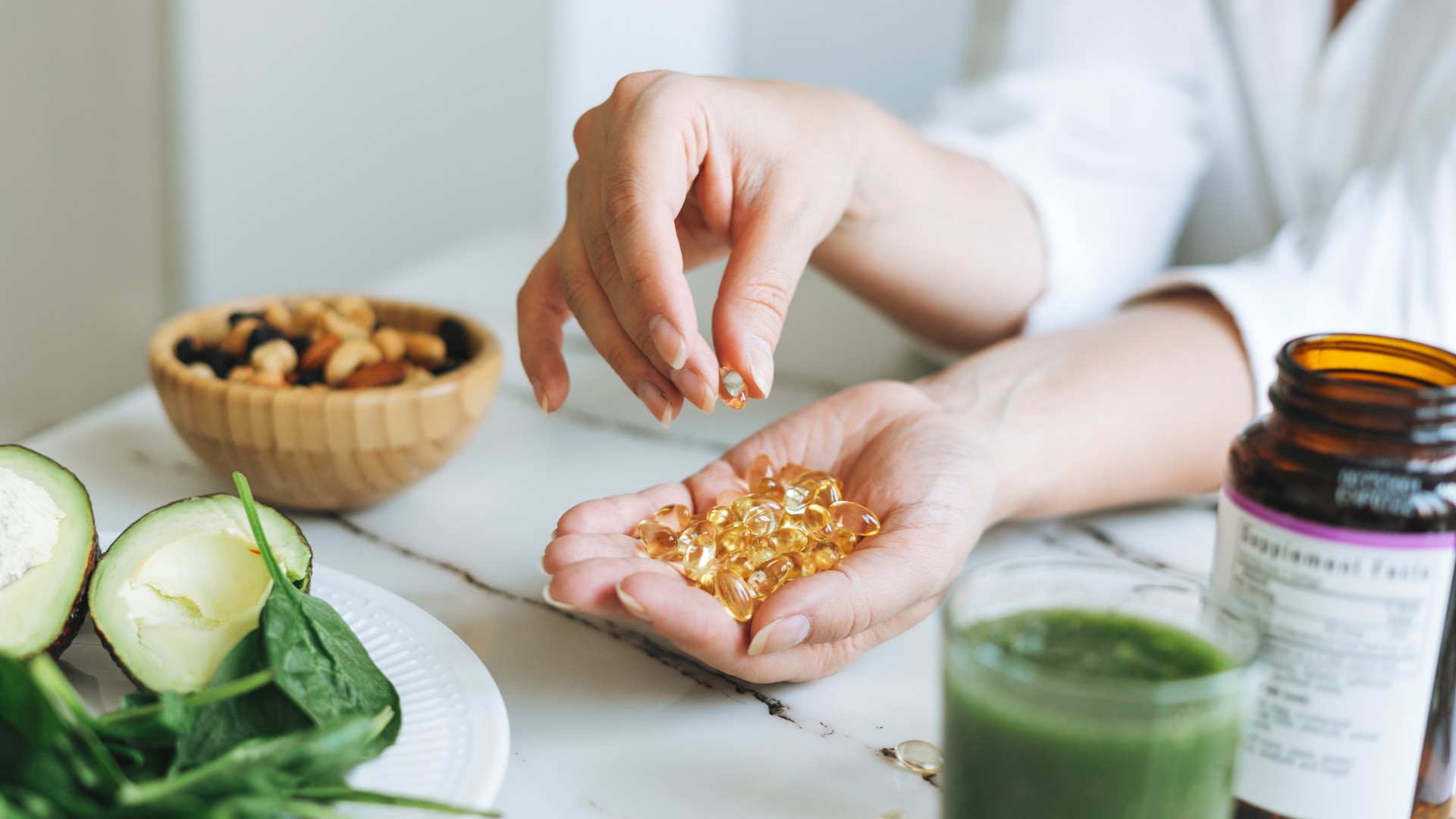 Do multivitamins work? Here’s what a nutritionist has to say
Do multivitamins work? Here’s what a nutritionist has to sayDo multivitamins work or is it better to take individual supplements? We find out which option is better and whether you need to supplement your diet at all
By Alice Porter Last updated
-
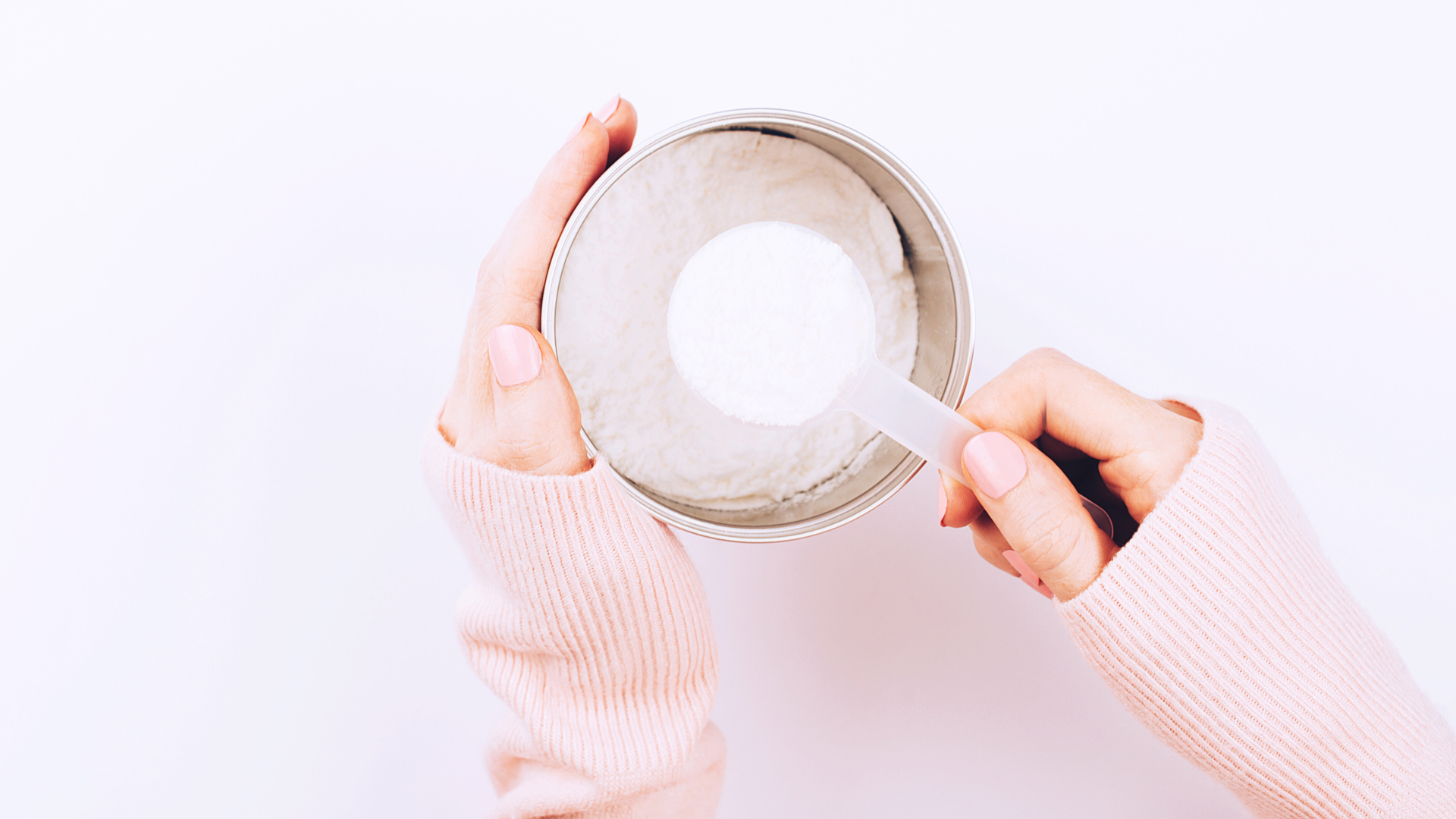 Collagen vs whey protein: what’s the difference?
Collagen vs whey protein: what’s the difference?Protein supplements are incredibly popular, but which type is best for your health? A dietician weighs up the pros and cons of collagen vs whey protein
By Alice Porter Published
-
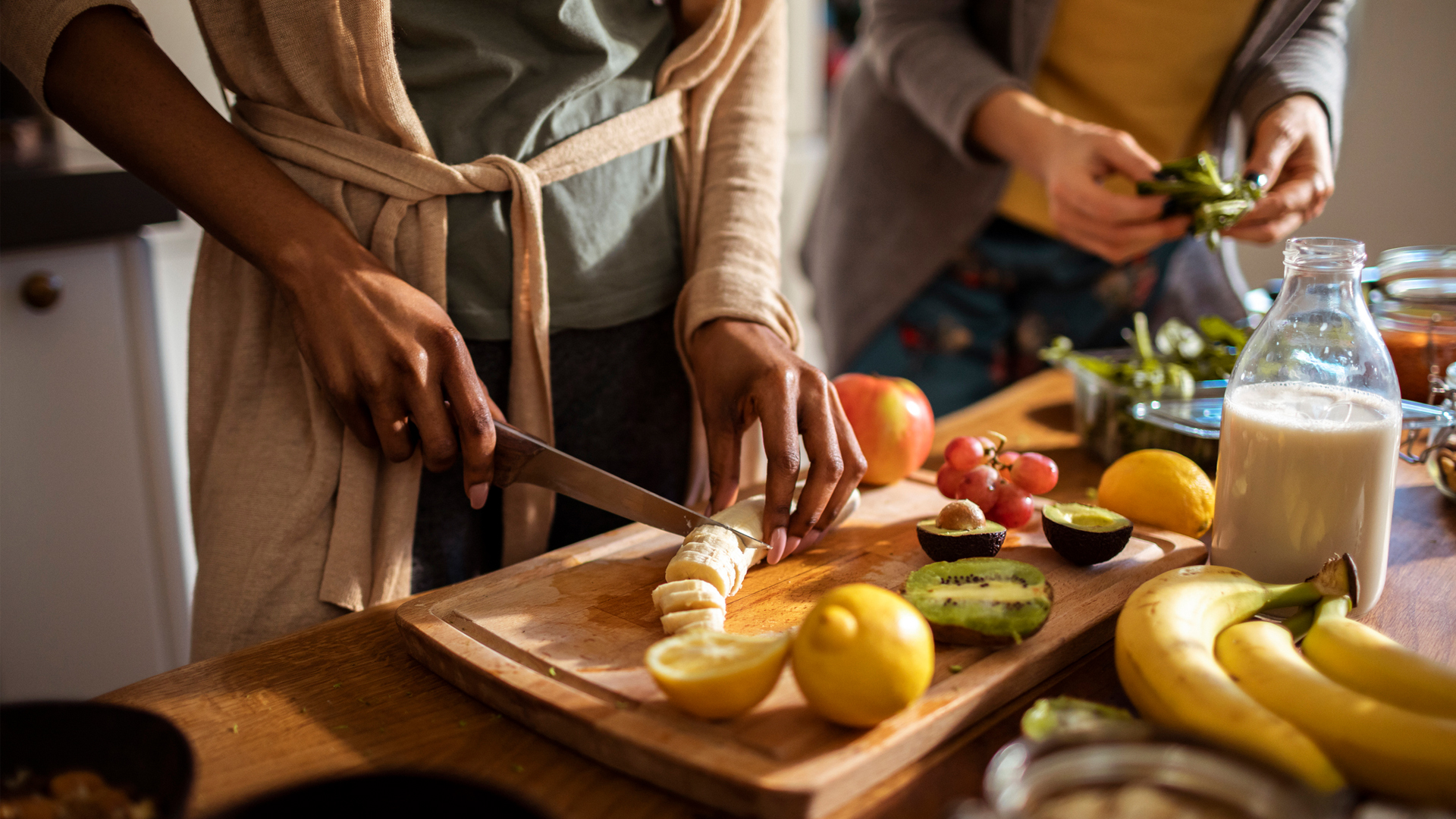 Foods for energy: what to eat to combat tiredness and fatigue
Foods for energy: what to eat to combat tiredness and fatigueFeeling tired? You may think that the only way to revive yourself is by going back to bed, but these foods for energy could help you feel full of life
By Alice Porter Published
-
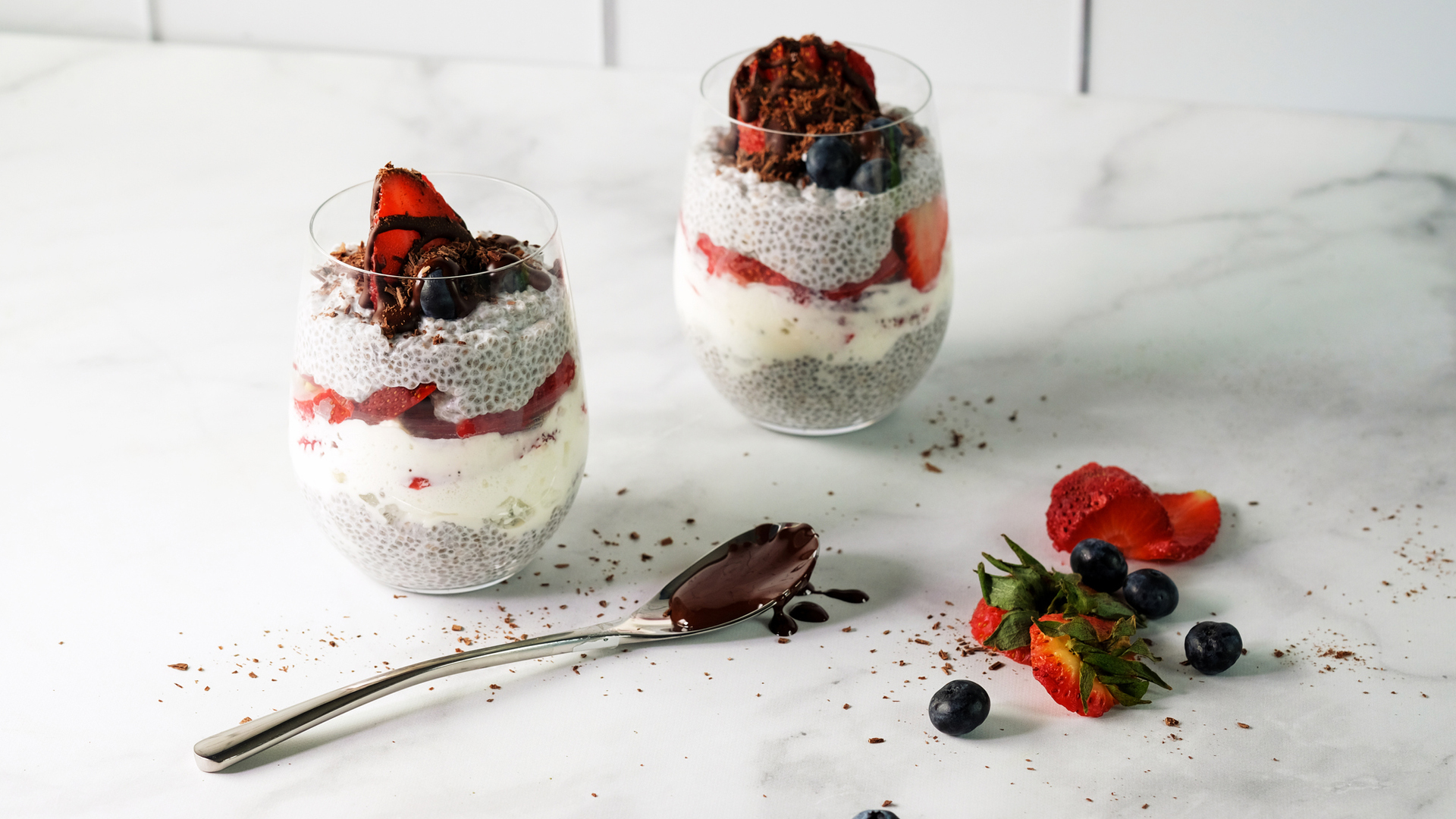 11 high protein desserts to satisfy your sweet tooth
11 high protein desserts to satisfy your sweet toothThese tasty high protein desserts will help to fill you up and build lean muscle
By Maddy Biddulph Last updated
-
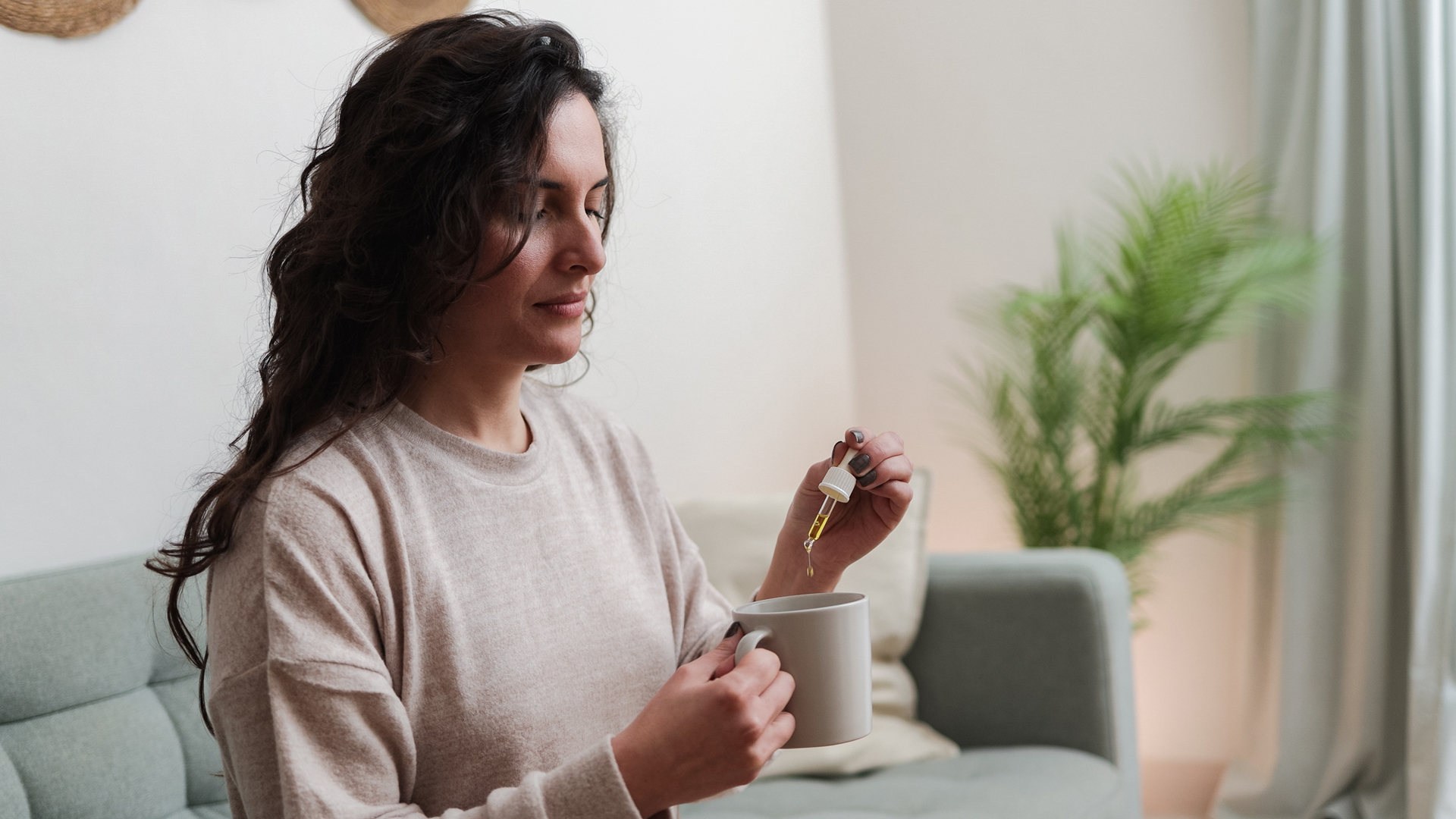 Which vitamins help anxiety?
Which vitamins help anxiety?Wondering which vitamins help anxiety? Here's everything you need to know
By Meg Walters Published